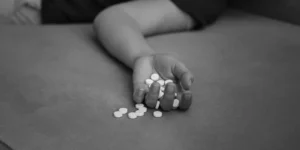Dependence Weaves Chains That Bind Both Mind And Body
What are the key physical and psychological effects of chemical dependency on individuals, and how do withdrawal symptoms manifest when they cannot access the substance? Our counsellors are here to help you today.
FREE ASSESSMENT082 747 3422Chemical dependency can be defined as an individual being physically and /or mentally addicted to alcohol or drugs. If a person is chemically dependent and cannot get the substance, withdrawal symptoms may result. This is one of the diagnostic criteria of addiction to alcohol or other drugs. “Chemical Dependency refers to the physical and psychological reliance on substances such as drugs or alcohol.
The history of chemical dependency dates back centuries with substance abuse being prevalent throughout various cultures. In the early 20th century, the medical community began recognising addiction as a chronic disease rather than a moral failing. This shift in perception paved the way for addiction treatment centers and the use of the term “”chemical dependency.””
In the addiction recovery community, individuals often refer to themselves or others as chemically dependent when they rely on substances to function or cope with daily life. Physical dependence occurs when your body becomes accustomed to the presence of the substance, leading to withdrawal symptoms when you attempt to stop or reduce use. Psychological dependence, on the other hand, refers to the emotional reliance on the substance to manage stress, anxiety or other negative feelings.
Treatment for chemical dependency typically involves a combination of therapy, medications and support groups. Rehab centers specialise in providing a structured and supportive environment for individuals to detoxify from substances, address underlying issues and learn coping mechanisms to maintain long-term sobriety.
While chemical dependency predominantly encompasses drug and alcohol addiction, it can also include other substances such as prescription medications or even behaviors like gambling. Addiction recovery centers aim to tackle these dependencies holistically, recognising the complex interplay between physical, mental and emotional aspects of addiction.
What are the key physical and psychological effects of chemical dependency on individuals, and how do withdrawal symptoms manifest when they cannot access the substance? Get help from qualified counsellors.Dependence Weaves Chains That Bind Both Mind And Body

Ice can be described as a extremely potent type of methamphetamine more commonly known as…

Trauma therapy gets marketed like a gentle chat where you finally tell your story and…

Overdose Is Not A Moral Lesson An overdose is not a punishment, not a headline,…
What are the key benefits of undergoing alcohol withdrawal at a detox clinic under medical supervision?
How do specific cues trigger cravings in individuals undergoing addiction treatment, and what strategies can help manage these triggers effectively during rehab?
Inpatient Rehab
Rehab care is a good option if you are at risk of experiencing strong withdrawal symptoms when you try stop a substance. This option would also be recommended if you have experienced recurrent relapses or if you have tried a less-intensive treatment without success.
Outpatient
If you're committed to your sobriety but cannot take a break from your daily duties for an inpatient program. Outpatient rehab treatment might suit you well if you are looking for a less restricted format for addiction treatment or simply need help with mental health.
Therapy
Therapy can be good step towards healing and self-discovery. If you need support without disrupting your routine, therapy offers a flexible solution for anyone wishing to enhance their mental well-being or work through personal issues in a supportive, confidential environment.
Mental Health
Are you having persistent feelings of being swamped, sad or have sudden surges of anger or intense emotional outbursts? These are warning signs of unresolved trauma mental health. A simple assesment by a mental health expert could provide valuable insights into your recovery.
Is My Loved One Addicted?
Your responses are private and not stored.
It’s Professional.
Clinically grounded
Clear, practical guides on addiction and recovery, based on recognised treatment principles and South African experience.
Therapy for addictionIt’s Affordable.
Straight talk on costs
We unpack typical fees, medical-aid issues, and funding options so you can compare treatment choices without sales pressure.
Paying for treatmentIt’s Convenient.
On your terms
Short explainers, checklists, and FAQs you can read, save, and share in your own time, from any device.
What to expect in rehabIt’s Effective.
Better decisions
We focus on evidence-based guidance and honest discussion of risks, relapse, and family impact to support long-term recovery.
Evidence-based
















